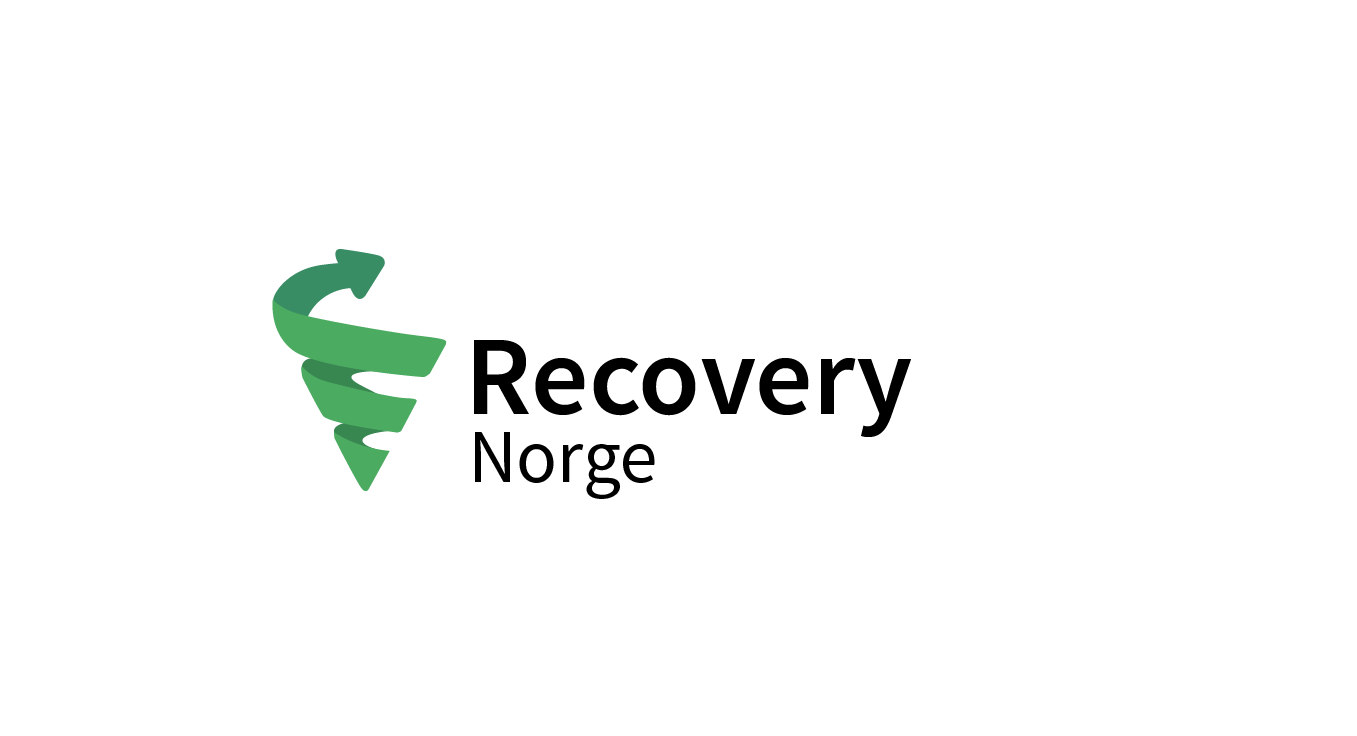Author: Alex Bermingham
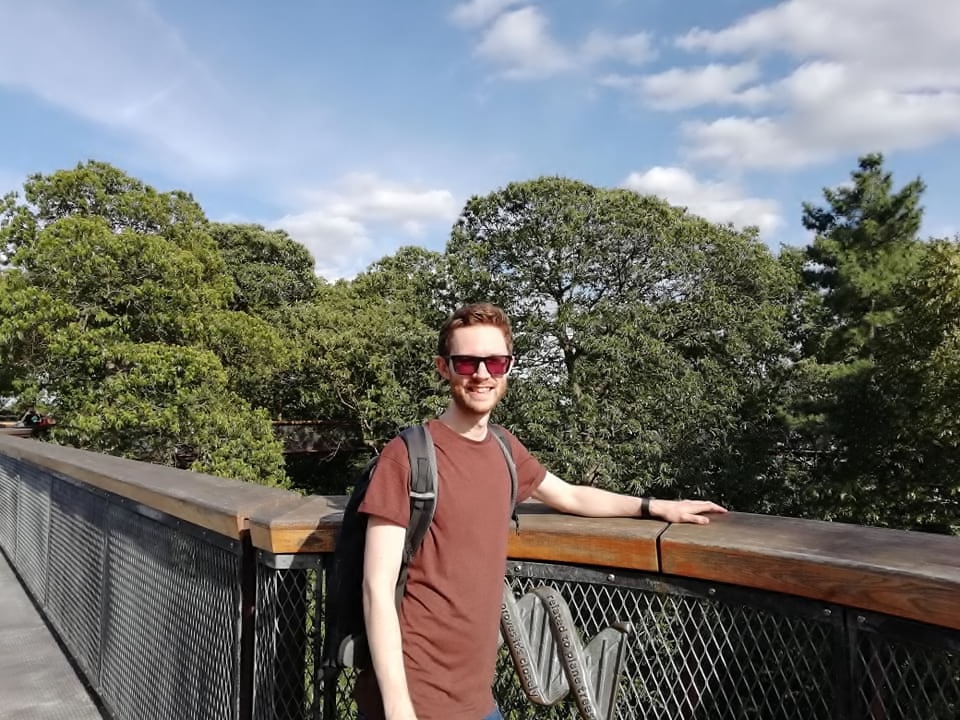
Foundation of issues
I was ignoring my body. There were serious signs that things were out of balance in my life, but I ignored them all, patched over the cracks and carried on regardless. I was working very hard at University, not getting enough sleep, partying and drinking, as well as struggling with some building anxiety in various areas of my life including a relationship.
My time at University was very full and rich, and there was a lot of enjoyment in it. But I was burning the candle too hard at both ends so to speak – working hard in my studies as well as organising and promoting a music club night event and DJing in the evenings. I was getting a real lack of sleep, becoming tired and stressed, but just pushing on regardless. I also seemed to be getting more susceptible to illnesses in general, such as a recurring issue with tonsillitis throughout my University years.
I was burning the candle too hard at both ends so to speak
In hindsight I can see that over my three years at University, despite the fact I was very inspired and happy in many ways with both my course and other creative pursuits, it was also a time where my body was pushed too hard, where stress and anxiety started to become very prevalent, and where my immune system started to become much more compromised.
Trigger of illness
I graduated from University during the summer of 2009, and was seemingly very lucky as I was offered a design position straight away – working as a graphic designer for the marketing department of the University itself. Realistically I was desperate for a break and a rest after graduation, but the work started immediately. It was quite demanding, and I found things difficult to adjust to, as well as dealing with my continuing anxiety and relationship issues.
In the autumn of the same year, I was hit hard with some kind of flu bug. I was in bed for around a week, with typical flu symptoms. After that, I got over the main symptoms, but I still felt unwell with fatigue and aches. This is where the problems really started, since I was desperate to get back to work, especially being new to the office and on a freelance contract.
It felt tiring to take part in any activity, even watching television or reading
The problem started with persistent fatigue, which I seemed unable to recover from. My heart rate also felt noticeably fast, and I felt stuck in some kind of stressed-state. It felt tiring to take part in any activity, even watching television or reading. I was continuing to take ‘cold-comfort’ tablets for several days after the initial illness, because I wanted to make use of the caffeine for some extra energy.
I pushed myself to return to work after a few days, due to impending deadlines and fear of making a bad impression or losing my job. I somehow managed to drag myself through another month or two of work, in order to complete my initial contract and deadlines. This made things much worse, and I was suffering from complete exhaustion. Outside of the office I could only rest, sleep and barely had energy left even to prepare food.
Eventually I had to leave work altogether, and move out of my rented flat which was in Birmingham, in central England. I was forced to move back home to be cared for by my mother, in a small rural town in south east England instead.
Things quickly go downhill
Luckily I had my mother available to care for me during this time – who helped enormously with providing food, care and assistance as well as with navigating a new and scary illness. However, despite this, things went downhill very quickly once I was back home to rest. In part I believe this was made worse by the extreme lack of understanding of what was wrong with me, and once diagnosed, the lack of information (and miss-information) about ME itself.
Doctors were quite quick to rule out any obvious other virus or health conditions. After a few months and after some pushing on our part to get answers, I was given the label of ME or ‘Chronic Fatigue Syndrome’. Like many others before me I’m sure, I found the name itself of ‘Chronic Fatigue Syndrome’, which by title alone sounds like purely an issue of tiredness, almost insulting, given the level and complexity of the suffering I found myself in. Certainly for my story, fatigue was a big part of the symptoms, particularly at the start of the journey, but that was only a part of it.
I also became extremely sensitive to anything in my external environment – often being unable to tolerate light or sound
As things progressed, I suffered with large amounts of ‘brain fog’, aches and intense painful migraines, as well as extreme exhaustion. By ‘brain fog’, I mean a kind of confusion, a ‘foggyness’ of mind which is hard to describe, but essentially my mind would feel slowed somehow, more hazy and much less sharp than usual. I’ve heard someone use the analogy of being stuck inside a tornado; that summarises very well the feeling of the internal symptoms and overwhelming nature of things. I also became extremely sensitive to anything in my external environment – often being unable to tolerate light or sound and having to spend longer and longer amounts of time in a dark room on my own.
Whilst it was initially partly reassuring to have some kind of diagnosis, it quickly became apparent that this was an illness of which little was understood, and no one seemed sure how to treat. Most official lines seemed to suggest there was no cure, and although many recovered it could take many years. In addition to this, of the small amount of self-help information we did manage to receive from the health service, I now believe was actually detrimental and (for me at least) made things worse. This was because the only real advise was ‘pacing’. The leaflets given suggested doing as little as possible and slowly building up my abilities. The info given used the visual metaphor of the body being like a battery, which needs to charge before being re-used.
If I awoke with terrible symptoms the following day, I believed I must have done too much the previous day, so in order to improve, I would need to scale things down
As a result I threw myself very heavily into a life of ‘pacing’. If this was the only way to recover, then I was going to master it. This meant I started to become an expert in checking my body for symptoms and issues, in order to quantify my progress. I became very wary of doing too much of any kind of activity, and invented a detailed numbering system for trying to keep tabs on my daily activity and progress. If I awoke with terrible symptoms the following day, I believed I must have done too much the previous day, so in order to improve, I would need to scale things down before I could start increasing activity.
Existing ME symptoms, plus heavy negative ‘checking’ focus on them, plus doing less and less activity and fearing more and more, sped up my deterioration further
This combination of existing ME symptoms, plus heavy negative ‘checking’ focus on them, plus doing less and less activity and fearing more and more, sped up my deterioration further. I understand the concept of pacing generally, and that for other areas of life, perhaps it could be used differently or more positively, but in my case this concept became a big part of a negative spiral. I can also see that if I had just stopped pacing with nothing to replace it, that may not have helped either. But when I got well, my perspective changed immediately to areas such as this.
A year in my room
Things continued to get worse quite fast. As I was already having bad symptoms despite very little activity, I felt the only way to improve was to do less. This was quite a depressing reality at the time, although I worked very hard to remain positive. I learnt some meditation techniques early on, which at least allowed me some good escape to a temporarily more calm place for at least part of the day. For many months there was little more I could do other than rest, sleep or meditate. I was lucky enough to still enjoy my food, although certainly I can understand why many have digestion issues. Even reading a book or listening to music was too much for me, so I spent my time resting and retaining what energy I had left for eating meals and the possibility of a small amount of conversation over food.
On a bad day I had to sit in complete darkness and silence in order to recover and rest.
It didn’t take long, perhaps a couple of months, before I was entirely based in my room, living on or in my bed. I was probably room-bound for around a year. At the worst of it, I was able to visit the bathroom only once a day. Everything was brought to me, and I was completely unable to do things for myself. The migraines and splitting headaches were one of the worst symptoms, and the ‘brain fog’ increased to more like a complete spinning of things around me, at times. On a bad day I had to sit in complete darkness and silence in order to recover and rest.
With the help of my mother, I tried many alternative medicines, diets and approaches to attempt a cure or improvement. I tried cutting different foods from my diet, going diary free, gluten free and trying different vitamins. In particular I trialled injections of vitamin B12 in large regular quantities. We had consultations with numerous doctors with rumoured success in the field of ME. My mother did a huge amount of research and work in these areas for me. Like many others that have a similar story, it felt like we had scoured the planet trying to find a cure. It really did feel like nothing was left, apart from one quite radically alternative approach, called the Lightning Process.
It sounded farfetched that just a training event, a ‘seminar’, would have the answers and cure
The name of The Lightning Process had been heard quite early on in my illness. I think possibly a distant friend of a friend had used it with some success. There were also some impressive stories somewhere online. However, it sounded farfetched that just a training event, a ‘seminar’, would have the answers and cure, to what was a seemingly chronic and complicated illness. Surely, I believed, the answer could only come in the form of a strong and validated medicine prescribed by a doctor? In addition to that, the idea of leaving the house for three days, listening to lots of information, meeting people, and the transport to and from the event, seemed completely impossible, given the parameters of my illness. The idea was very frightening. It sounded beyond risky, and if it didn’t work could have the potential to make me even worse.
LP Recovery process
Considering there was nothing else left, and given the success stories, I decided to take a leap of faith and try the Lightning Process. Kathy Kent was my practitioner, and she was absolutely amazing. Luckily she was also able to do the seminar on a personal home visit to me, as I was unable to leave the house.
To give a brief summary, The Lightning Process is (or was during my time) a three day course, whereby you learn tools and techniques to retrain your own mind and wellbeing. The mind and body are intrinsically linked, and this approach allows for changes which can have a huge effect on the physical body as well as one’s thinking. It’s been very successful for many people with ME, and also for other alternative issues such as depression and anxiety.
I knew already that this was no magic drug, that I would have to put in effort and understanding to make this work, but I was so desperate to get better that I was more than happy to go the extra mile and do whatever was required. That was something which quickly made sense once the learning started – this was indeed a tool you trained yourself to do. Whilst that can require a lot of pro-activity, it also means you can have very powerful results. That’s exactly what I got.
I was thinking and feeling completely differently
By the end of the first day I felt incredibly improved, I was thinking and feeling completely differently. At the end of day two we were laughing and joking, and I felt so much joy, so much relief. Kathy, armed with Phil Parker’s teachings, had literally provided a life line of transformation to me. By the end of day three of the seminar, I was able to stand up, and walk down the stairs for the first time in many months. It was just incredible. My whole world and understanding of things had been turned upside down, in the best way possible. It did not diminish what I had suffered. My symptoms had very much been real. But I now had a tool to learn and perfect, which could completely re-wire my health, my mind, and my body.
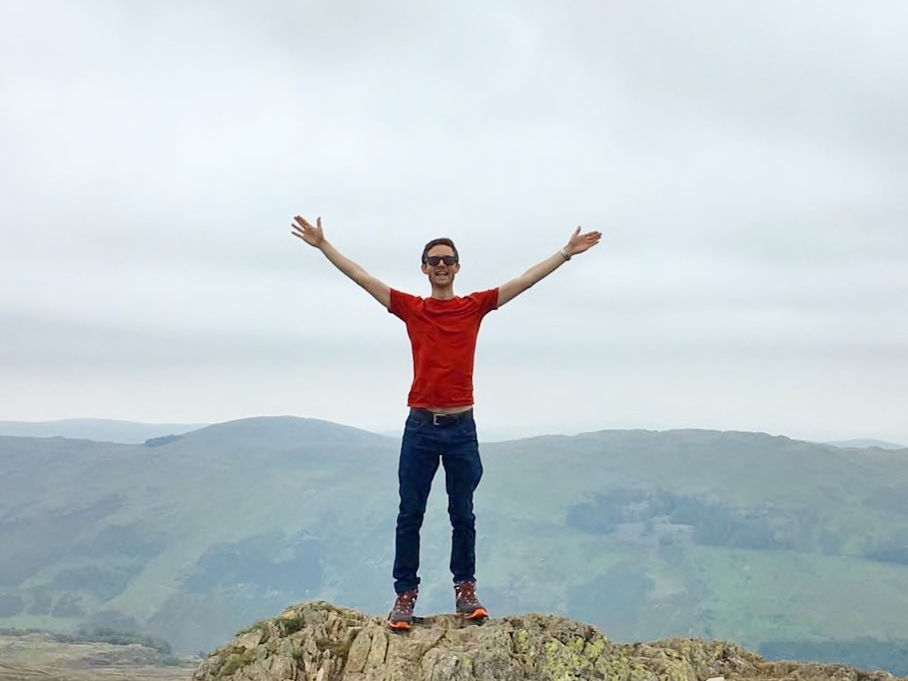
Success and recovery
My initial recovery was a great success. Friends and family were overwhelmingly happy and could hardly believe both the level of improvement and the speed of which it happened. For me and particularly my mother and family around me it was a huge relief.
In terms of my physical abilities, the ability to walk, talk, run even, I was immediately cured. It took some adjustment for a few days, after doing no exercise for so long, but I could do it. I no longer worried about pacing, about ‘over-doing it’, or about what I read or watched. From that point onwards I was able to do every ‘normal’ or ‘everyday’ activity. I was able to get out and about on my own, take walks, meet friends, stay up late and sleep normally. I continued to put a lot of work in with using these new tools. This was all as a direct result of taking part in the Lightning Process, and with Kathy’s help, working hard to immediately put the learning into practise.
From that point onwards I was able to do every ‘normal’ or ‘everyday’ activity
This is something that has remained with me ever since – I never lost the ability to do exercise, to leave the house, or to communicate with others normally. I’ve never again had any issue with light sensitivity or splitting headaches or migraines. From all of these areas, I have been completely well and this happened only as a result of my work with the Lightning Process.
After a few months of adjusting, I spent a month travelling in Europe on my own. I became much more self-sufficient. I began looking for work and starting some part-time freelance design projects. I spent more time away from the house, took holidays and even went snowboarding. After a couple of years I gained my first proper design job in London, and moved to the city. I’ve been working full time in central London design jobs ever since (at the time of writing, over 6 years).
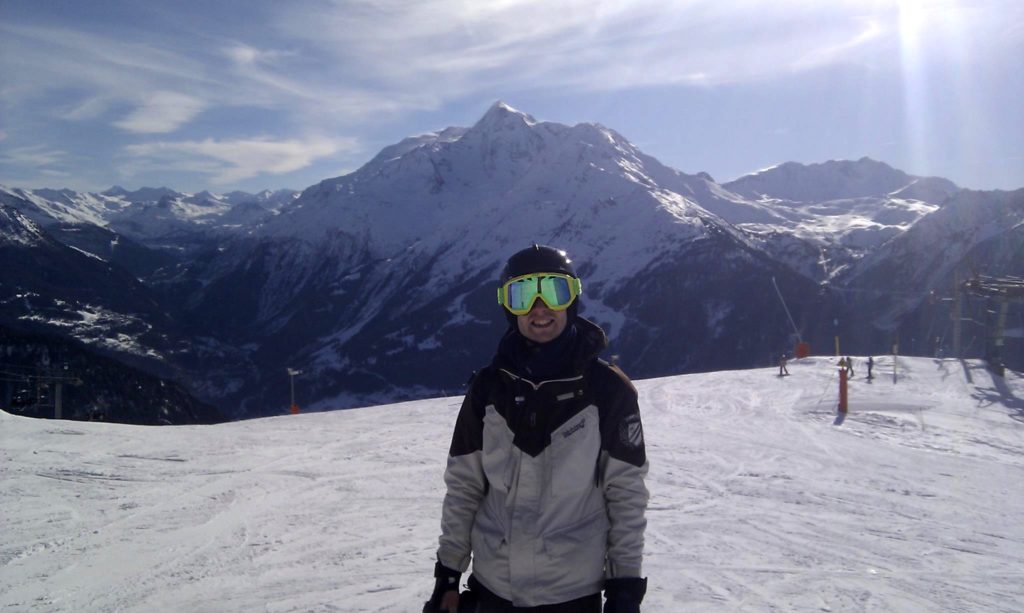
Longer term life struggles
My initial recovery felt almost miraculous; I had made positive changes so fast and improved by such a stark contrast compared to my old existence. However, that is not to say everything was easy afterwards. Life can be troublesome even when you are well, and I had many issues to understand and resolve that needed attention.
In particular, it was very difficult to get work in my field initially, as I had emerged into a new UK recession, as a graduate with only a little experience and an already large gap in my CV due to illness. For related and other practical reasons, I also remained living at the same house for quite some time, and found this difficult due to all the memories and triggers remaining from my time of illness.
I felt quite stuck in a limbo between my time in illness and whatever my new life should become
I no longer had a life to return to in Birmingham, but I wasn’t sure exactly what new life I should be building instead. I lacked confidence in many ways and felt quite stuck in a limbo between my time in illness and whatever my new life should become. This made it easier for some old habits and mild symptoms to creep back in at times. I had tools to deal with this, and I never went back to any of the fatigue or disabilities described above, but I still struggled for some time with anxiety and other related issues.
Further recovery in remaining areas
After a couple of post-illness years based at home, I moved and lived my first couple of years working full-time in London. Whilst I gained great work experience, friendships and self-sufficiency, this was also a very difficult time. Largely that was due to the fast-paced nature of my first proper job, working in a busy print studio as a graphic designer. I was commuting into central London daily, and living a very full life. There were also some very difficult people to deal with in that world. It’s perhaps, in hindsight, the worst kind of job I could have picked for someone recovering from a stress related illness! It may have delayed my full rehabilitation somewhat, certainly at the least it was very testing and allowed many opportunities to continue practising stressful mind-states!
All in all, I have felt the opportunity to reinvent myself and start enjoying a new normal.
Luckily, following this job, I moved into a much more nurturing environment as the internal designer for a charity. It was comparatively much more relaxed, with lovely people to work alongside and achievable goals. This, alongside changes that occurred in my personal life and relationships, allowed more space and time for further recovery, calm and a new more positive life. I also pursued Buddhism, which has steadily provided a very key part of my wider holistic wellness and happiness in recent years. I have been steadily improving my outlook on things, meditating more, and prioritising my time better. All in all, I have felt the opportunity to reinvent myself and start enjoying a new normal.
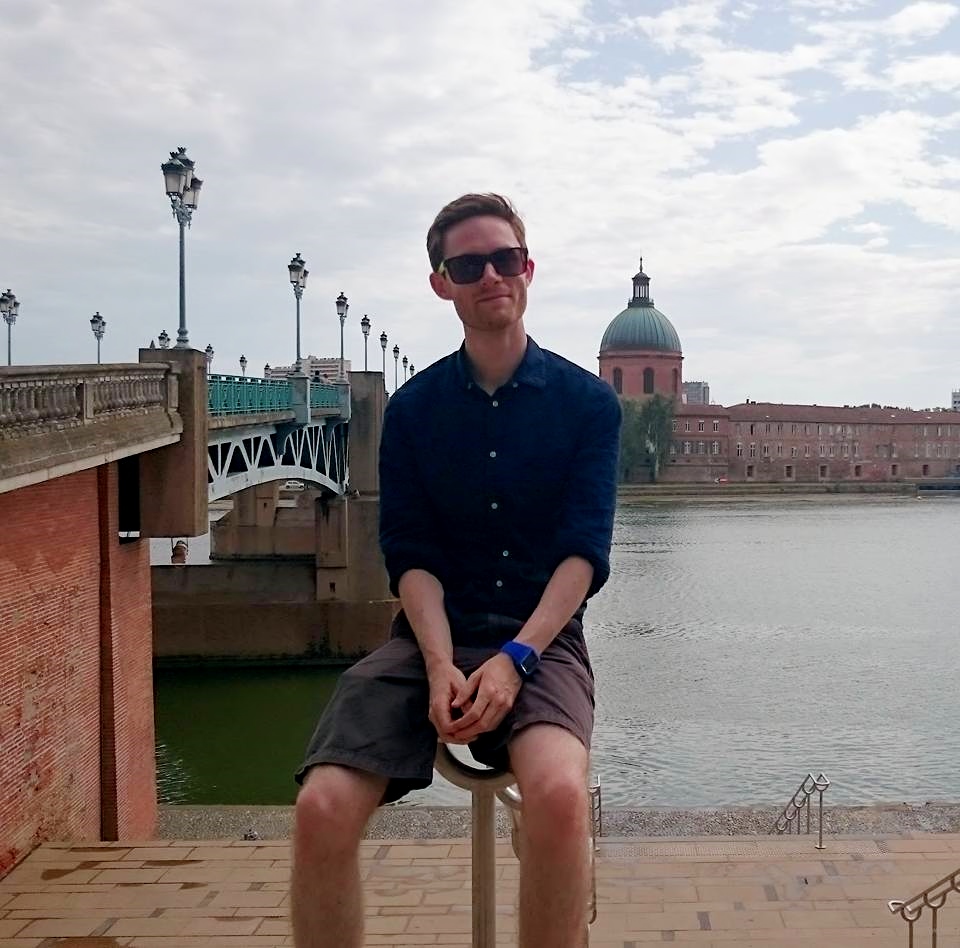
Life now – a new normal
It took a long time to understand myself better after recovery. At first I think I felt I should just get back to being exactly who I was before illness, and that anything less was on some level a failure. When I struggled with some areas, such as being busy, or drinking alcohol again (which seemed to be unhelpful in bringing up some old symptoms), or dips in confidence or anxiety, I questioned myself and my overall level of wellness. It comes up sometimes. However, I think in the most recent years I’ve started to try and look after myself more kindly and try and find my ‘new normal’.
I’ve started to try and look after myself more kindly
I have to accept I am different to before the illness. I am still a genius in entering some level of stress-state if I want to, or if I slip-up somehow. I feel that personally I have more work to do, in keeping myself buoyant and well, on a daily basis than other people might do. I have to be wary of my internal dialogues, continue to use tools like the Lightning Process, self-coach myself, meditate and do other things to get the best out of myself and keep on top of things in life.
That said, there are also many positive things I have now as a result of what I’ve been through. I have a much larger gratitude for everything I’m able to do. It makes me appreciate the little things. It helped me to improve my relationships with people around me. Through the initial meditation, I was also led towards Buddhism, which has also become a big and very positive part of my life now.
What is right for me and my life now might be slightly different, but that doesn’t make it wrong
What is right for me and my life now might be slightly different, but that doesn’t make it wrong. I have to remember also, that many approaches in my pre-illness life were not healthy, not in balance, and were often related to the burnout and crash into ME in the first place. I am also trying to find more acceptance with the little bits of stress response that might find their way into my day. More often than not I can do all necessary tasks, even if struggling with some anxiety or a little ‘foggyness’. I have to remember that I have come a long way, that I am healthy and active, that I am self-sufficient financially and that I have many things to be grateful in my life. Sure, I still have some areas I want further improvement on – more confidence, more calm, an easier-going daily flow and so on. But I am certainly well and healthy, in a medical context. I can do whatever I choose to. I am living my life now.
